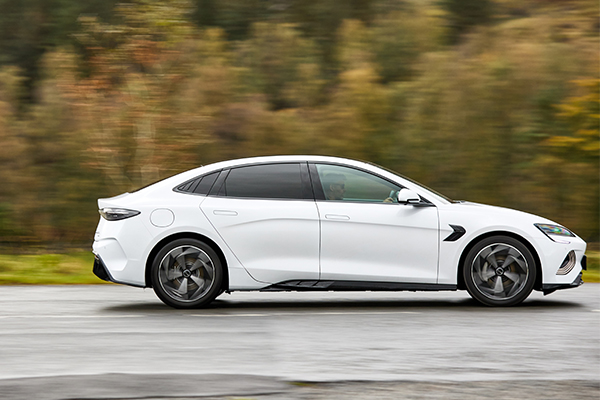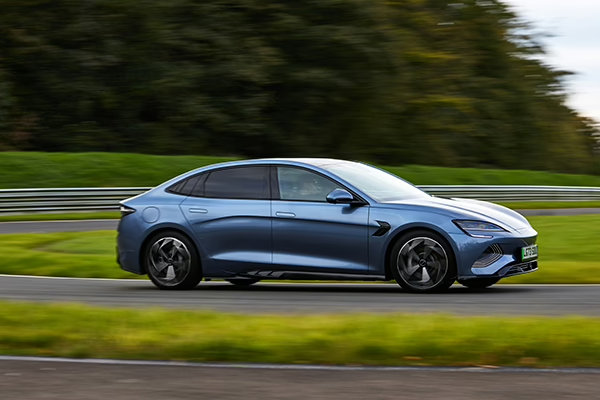We're busting the biggest electric car myths!
There are plenty electric car myths that still linger, which are not helping people’s confidence in making the switch.
But it is inevitable that most of the cars on our UK roads in a few decades will be electric.
It’s important to note that the electric vehicle landscape is dynamic, with ongoing advancements and improvements in technology and infrastructure.
As the industry evolves, many of the concerns associated with EVs are being addressed.
So we’re going to list eight of the most common electric car myths and explain why they’re simply not true anymore.
1. "EVs are expensive"
Yes, it’s true.
Electric vehicles do have higher list prices compared to their ICE alternatives.
This is because they’re made up of more expensive parts and technology, so they’re understandably more expensive if you pay for one outright.
However, there are a variety of different finance options that don’t make an EV completely unaffordable.
And with so much choice nowadays, there’s a price range for everyone.
EVs also work out cheaper in the long run.
With less moving parts to worry about, there are less things that’ll need repairing or replacing, which means your servicing costs will be lower.
The running costs are also lower, as you won’t spend as much on charging as you would on petrol and diesel.
2. "EVs don't have enough battery range"

This is one of the electric car myths that is becoming less accurate as electric vehicle technology advances.
Many modern EVs have a range that is more than sufficient for the average daily commute. Additionally, the range is constantly improving with advancements in battery technology.
High-end EVs can now achieve over 300 miles on a single charge. For most drivers, the current range of EVs is more than adequate. The BYD Dolphin can travel up to 265 miles.
3. "EVs aren't any better for the environment than an ICE"
Firstly, an electric vehicle emits no tailpipe emissions from the minute it hits the road, so this one is simply not true.
It has been highlighted that emissions from EV battery production is higher than those for the production of ICE vehicles.
But that’s exactly the point – the bulk of an EVs emissions have already been produced before it’s put on our roads.
Plus a lot more manufacturers are starting to produce their electric vehicles in more carbon-neutral ways, so we can expect to see a decrease in emissions from battery production.
4. "EVs have a high risk of catching fire"
Yes, it’s true than an EV can catch fire, but did you know petrol and diesel cars can catch fire too?
And EVs are actually some of the top-rated cars for safety and are less likely to catch fire compared to its ICE alternatives.
In fact, BYD electric cars are equipped with the infamous Blade Battery which passed the nail penetration test, one of the most extreme ways to test battery safety.
Simply put, the battery is penetrated with a nail to stimulate an internal short circuit, which is what could happen during a car accident.
BYD’s blade battery underwent this test without emitting fire or smoke and only reached surface temperature of between 30-60 degrees, demonstrating just how safe it is.
5. "There's not enough public charging infrastructure"
The charging infrastructure for EVs is rapidly expanding globally.
The government is investing heavily in building more charging stations to support the growing number of electric vehicles on the road.
The situation is continually improving, and the perceived lack of charging infrastructure is becoming less of a barrier to EV adoption.

6. "EVs are slow and lack power"
This is an extremely outdated myth.
Look at the BYD SEAL AWD which can reach 62mph in 3.8 seconds.
Modern electric vehicles can be extremely powerful and offer instant torque, providing a quick and responsive driving experience.
A large range of high-performance electric cars are increasingly entering the UK market, dispelling the notion that EVs are slow.
7. "My EV's battery will need replacing every two or three years"
EV batteries are designed to be durable and long-lasting. While it’s true that batteries degrade over time, advancements in battery technology have significantly extended their lifespan.
The average lifespan of an EV battery is well beyond two or three years, and many manufacturers offer warranties on their batteries for a much longer period.
BYD’s battery warranty is up to 8 years or 125,000 miles.
8. "EV batteries can't be recycled and end up in landfill"
EV batteries are recyclable, and the recycling infrastructure for them is growing. As the EV market expands, there are increasing efforts to develop efficient recycling processes for used batteries.
Moreover, EV batteries can often be repurposed for energy storage, providing a second life before recycling.







